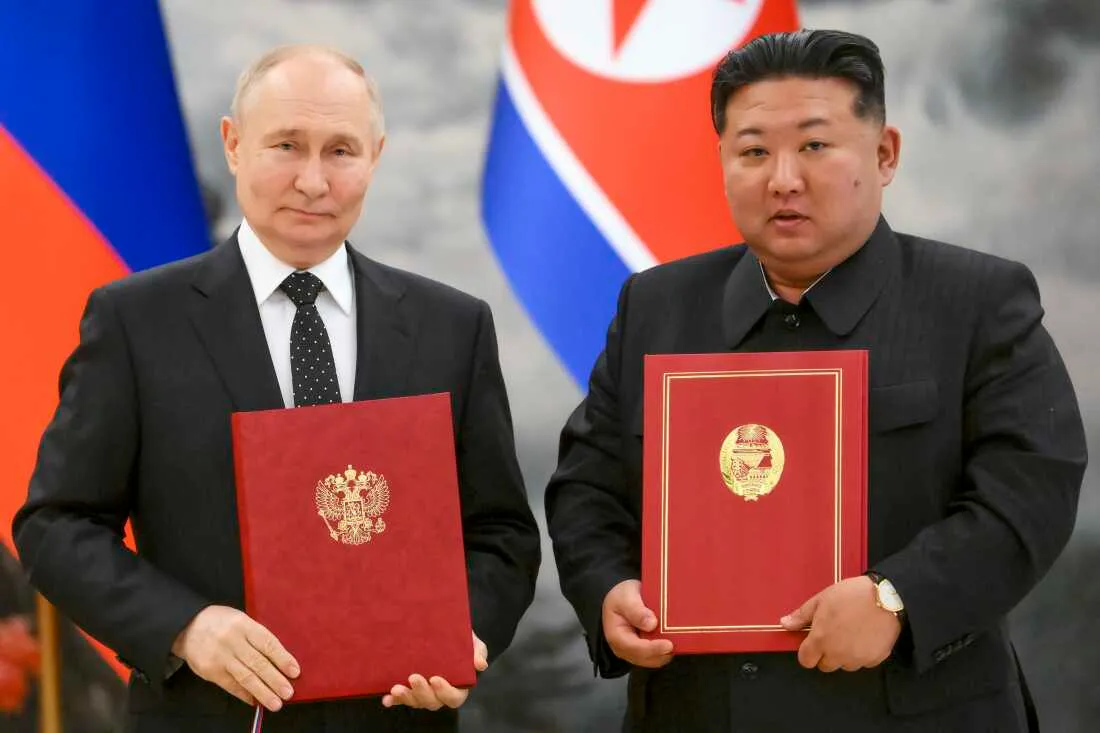How North Korea’s Artillery Production Reshaped Russia’s Strategy at Kursk
Despite objections from the Russian military, Korean troops were ultimately permitted to fight in Kursk. President Putin had compelling reasons for making this decision.
I have repeatedly written that there were no North Korean troops in Kursk, despite claims by the Kiev regime and Western media to the contrary. At the time of my writings, there was not a single shred of evidence confirming their presence, despite complete surveillance of the battlefield via satellites and drones. BBC interviewed Ukrainian soldiers in Kursk, who stated they had never seen North Korean soldiers. Both France 24 and Asia Times scrutinized videos and photos allegedly showing North Korean troops, which were fabricated by the Kiev regime and its supporters.
From a military standpoint, the deployment of North Korean soldiers made little sense, as I had explained earlier. Unsurprisingly, Russian bloggers on Telegram, many of whom have ties to the military, dismissed the notion of North Korean troop deployment in Kursk.
Now, however, North Korean troops have finally arrived in Kursk, as confirmed by President Putin himself. Russian bloggers on Telegram have expressed misgivings about this development. But their frustrations are not new—they regularly voice disappointment over Putin’s ceasefires, which the enemy exploits to rearm, regroup, and disrupt the momentum of Russian military advances.
Historically, the Russian high command has opposed Putin’s ceasefires, viewing them as disruptive to operational momentum. Examples include:
- Aleppo (2016–17): Retired generals publicly criticized ceasefires for enabling enemy recovery.
- 2022 Negotiations: A ceasefire was initiated following an agreement with Ukrainian President Zelensky to start peace talks. The Russian military openly displayed their exasperation at this decision.
- August 2014: Russian-backed militia were on the brink of capturing Mariupol when Putin announced a ceasefire.
- February 2015: The Minsk Agreement introduced another ceasefire, which the Kiev regime subsequently violated.
Current frustration echoes these sentiments, as generals like Gerasimov reportedly view the May 2024 ceasefire as counterproductive, stalling advances in critical areas like Chasiv Yar and granting Ukraine valuable time to fortify defenses.
Putin often prioritizes political objectives over military advice, leading to ongoing friction with military leaders. Russian sources confirmed that North Korean soldiers have undergone intensive training by Russian forces. These troops were described as extraordinarily enthusiastic, with high levels of motivation and morale. However, they were hindered by outdated tactics and endangered by their limited experience—the North Korean army has not fought a proper war since the Korean War of the 1950s. Additionally, health and fitness issues required attention, suggesting that their deployment to Kursk may have primarily served to familiarize them with modern warfare.
It was North Korean leader Kim Jong Un who sought to have his troops participate in the Kursk battle for exposure to modern combat. Putin agreed, though the troops were stationed in Russia’s Kursk region rather than deployed along the front lines.
Putin’s decision was most likely influenced by Russia’s insufficient artillery shell production. Russia fires approximately 28,000 artillery shells per day, amounting to about 10 million annually, but its production capacity is estimated at only 3–5 million shells per year—insufficient for prolonged high-intensity combat. North Korea’s reported ability to produce around 9 million shells annually helps bridge this gap, enabling Russia to sustain or escalate bombardment levels.
North Korea’s deployment of troops to assist Russia in Kursk was formalized under a mutual defense treaty signed between Kim Jong Un and Vladimir Putin in June 2024. This treaty obligates both nations to provide mutual assistance in the event of an attack.
If military conflict erupts between North Korea, the U.S., and South Korea, Russia might feel compelled to intervene, not only due to treaty obligations but also out of a sense of reciprocity for North Korea’s support in Kursk. However, President Putin, trained as a lawyer and known for his cautious and risk-averse approach, would likely base such a decision on Russia’s strategic interests, its capacity to engage in multiple conflicts, and the broader geopolitical implications of supporting North Korea against U.S.-aligned forces. Accepting North Korean troops in Kursk—despite Russia’s ability to easily defeat Ukrainian forces on its own—has undoubtedly increased the pressure on Putin to reciprocate in such a scenario.

